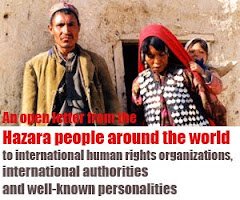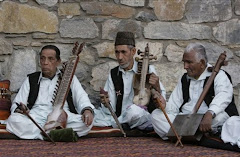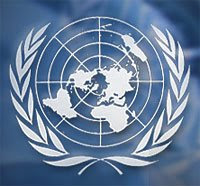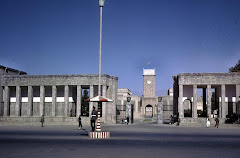
Il prominente giornalista hazara, attivista per i diritti umani e scrittore Kamran Mir Hazar al Festival di Poesia Internazionale di Medellin (Colombia)
21 Festival di Poesia Internazionale: l’incontro dell’antilope e la stella
Dal 2 al 9 Luglio 2011
Da Nicole Valentini
Kamran Mir Hazar nasce in Afghanistan nel 1976. Egli rappresenta uno dei più famosi giornalisti del panorama afghano, nonché attivista per i diritti umani e scrittore. Ora vive e lavora a Hønefoss in Norvegia, con la moglie e la figlia di un anno. Mir Hazar è anche il creatore di due tra i siti più letti in lingua persiana: il sito di informazione www.kabulpress.org e il sito letterario www.rahapen.org. Oltra a dedicarsi alla scrittura di libri didattici e a pubblicazioni riguardanti politica e censura, Mir Hazar è un poeta politicamente impegnato. La sua poesia non è influenza unicamente dai poeti di lingua e tradizione persiana, ma anche da scrittori latino americani, come il messicano Juan Rulfo e il colombiano Garcia Marquez. Due sono le raccolte di poesia finora da lui pubblicate: lahn-e tond-e asbi dar ezlâ’-e parvân-e sjodan (The Cry of a Mare about to become a Butterfly) Stoccolma 2009, e prima ancora, Ketâb-e mehr (The Book of Mehr). Un’antologia delle sue poesie tradotte in olandese verrà proposta al Festival di Poesia Internazionale. A causa della critica rivolta da Mir Hazar al disumano trattemento dei rifugiati afghani in Iran, nel 1995 la censura iraniana impedì la pubblicazione della sua prima raccolta di poesie. Nel 1999 scrisse una lettera aperta alle Nazioni Unite, all’UNICEF e all’UNESCO nella quale descriveva la tremenda situazione di numerosi uomini, donne e bambini afghani, lettera che venne poi firmata da 330 intellettuali afghani ed iraniani. Ciò naturalmente non fu accolto molto bene dal regime iraniano. L’ultimo libro dell’autore, “Censura in Afghanistan”, è stato recentemente pubblicato dalla Norway’s IP Plans e-Books. E’ il primo libro che tenta di esplorare la sistematica soppressione della libertà di parola in Afghanistan, la quale è stata caratteristica dominante delle autorità del Paese per centinaia di anni. Nel 2004, Mir Hazar torna in Afghanistan, dove fonda una rivista di critica letteraria. Poche settiamane dopo la pubblicazione viene proibita. In seguito diviene redattore e reporter di radio stazioni di Kabul Kelid (Key) and Salâm Watandâr (Greetings Fellow Countryman!). La sua continua lotta contro il sempre più repressivo regime di Karzai è stata supportata dalla Federazione Internazionale dei giornalisti (IFJ), Reporter senza frontiere e dal Comitato per la protezione dei giornalisti (CPJ). Gli scontri con le autorità e la sua successiva incarcerazione a causa delle sue critiche al Governo hanno profondamente colpito Mir Hazar, tanto da portarlo a confrontare le condizioni delle prigioni locali con quelle di Guantanamo e ha descriverle poi in una serie di cinque poesie intitolata (Writing Virus). Dopo il suo rilascio, Mir Hazar ha iniziato a temere per la sua attività di giornalista e per la sua incolumità ed ha quindi deciso di lasciare il suo paese per sempre. Dopo aver viaggiato fino in India, e con l’intervento dell’ UNHCR, è finalmente giunto in Norvegia. Kamran Mir Hazar ha vinto numerosi premi per il suo lavoro e per i suoi reportage, tra i quali una borsa di studio da parte dell’American Human Rights Watch nel 2008.


















